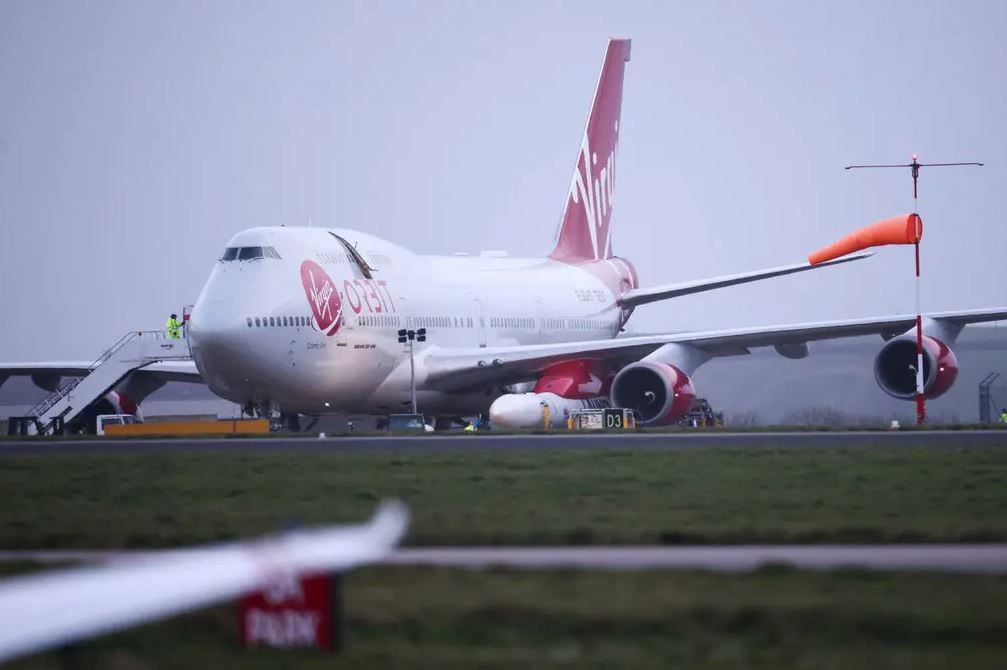For a British space programme that was just getting started, the catastrophic failure that occurred in January during what was supposed to be the very first launch of a satellite from the United Kingdom was an enormous letdown. It seems at this point that the unsuccessful flight may be the cause of the launch firm Virgin Orbit going out of business.
The California-based company, which is a subsidiary of Richard Branson’s Virgin Group, announced on Thursday, in a filing with the United States Securities and Exchange Commission, that it would be terminating the employment of 675 workers, which represents approximately 85 percent of its total workforce. According to Virgin Orbit’s statement, the company acted because it was “unable to obtain substantial finance.”
Since the launch of the business’s rocket from Cornwall, UK, did not result in it reaching orbit, Dan Hart, the chief executive officer of Virgin Orbit, has been frantically searching for more funding for the company. A representative for the corporation said she could not go more than what was included in the petition.
Even though it is paying the majority of severance payouts, Virgin Group seems to have made the decision not to provide the firm with any more big cash. It is possible that some personnel of Virgin Orbit may be offered positions at Virgin Galactic, another space enterprise owned by Mr. Branson.
The challenges faced by Virgin Orbit may cause customers to question the unconventional approach used by the business to launch satellites into space. The organisation made use of a modified Boeing 747 aeroplane in order to lift into orbit a rocket that was loaded with satellites beneath its wing. After achieving flight, the rocket would separate from the satellites and then start its engine to begin the ascent into orbit before releasing the satellites.
Since it could operate from airstrips all over the globe, this launch style had the benefit of being more versatile and less expensive than vertical rocket launchers. Several experts believe that because to this factor, it will most likely continue to be of interest to governments notably the United States government.
Nonetheless, the procedure has not yet shown that it can be trusted in its current form. As a result of the fact that the underwing rocket used by Virgin Orbit had a lower capacity than more traditional launch vehicles, such as those used by Elon Musk’s SpaceX, it was always more likely to be a niche product than those used by rivals.
The difficulties experienced by Virgin Orbit create a gap in Britain’s plans to become a space power. The United Kingdom is home to a significant satellite manufacturing sector, which has expressed frustration about the country’s lack of a domestic launch facility.
The difficulties faced by the corporation may also deal a severe blow to the nascent space sector that is developing in the vicinity of Virgin Orbit’s launch site in Cornwall, which is located in southwest England. At the Newquay airport, investments of 21 million pounds, which is equivalent to around $26 million, had been made so that satellites could be loaded into rockets there. Nevertheless, more locations in Britain are now being planned in order to accommodate the launch of satellites.
The launch in January was a high-profile event in Britain and received strong support from the community of space enthusiasts that the nation has. They were overjoyed to learn that they would no longer have to go to New Zealand or Kazakhstan to launch their spacecraft, and the satellite makers in Britain were no exception.
The 747 was able to lift off without incident, however the second-stage engine experienced a “anomaly” around 110 miles above the ground and was thus unable to attain orbital velocity. This resulted in the failure of the mission to reach orbital velocity. The owners of the nine satellites on board suffered a devastating loss when they were destroyed. An investigation is now being carried out. While Virgin Orbit has not provided a comprehensive explanation for the reasons behind the accident, it seems that a faulty fuel filter had a significant part in the incident.
The prior launches that Virgin Orbit had conducted took place in the Mojave Desert in California, and four out of the five of those launches were successful. Yet, the tragic outcome for the corporation was precipitated by the botched debut in Cornwall. The launch team, who generally reside in California, ended up staying in Britain for a far longer period of time than they had intended, which caused them to burn up their limited financial resources. This was a terrible advertising for potential future clients and investors.

